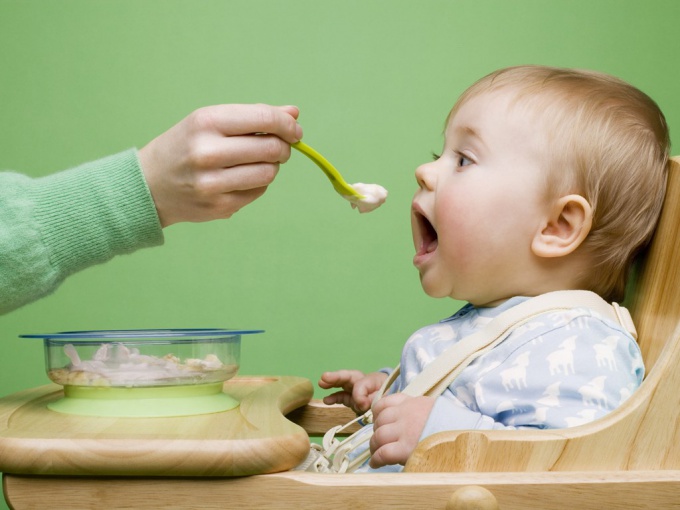Instruction
1
First you have to decide what kind of cereal you start solid foods. Usually it is rice, buckwheat or corn cerealsand industrial production, as they do not contain gluten and to a lesser extent capable to cause an allergic rash on the skin of the baby. When buying, pay particular attention to the composition. In the first kase should not be any additives and milk protein.
2
After opening the box, be sure to check on her date. This will allow you to track the shelf life of the product, which is very important because after three or four weeks open kasand can absorb a lot of bad microorganisms from the air.
3
After use carefully close the package, and store cerealsin a dark and dry place.
4
Industrial Kashand not require cooking. Prepare kas, following the instructions on the package. Usually it is diluted with plain water, it is possible for taste to add a little expressed breast milk.
5
Another tip – in the process of cooking cerealsdo not fill it with very hot water, otherwise inside can form lumps disappear and the useful minerals.
6
To start solid foods with cereals in the morning, so you can monitor the allergic reaction that usually manifests during the day.
7
Start cerealswith half or full teaspoon, increasing with each passing day, the portion in half.
8
It is not necessary to give the baby cerealsfrom the bottle, this leads to digestive disorders. Trying food from a spoon, the child learns to eat and chew. The food while well moistened with saliva and enters the stomach in the "correct" form.
9
If the first kasand was successfully eaten and digested, not causing allergies or indigestion, enter a new kind of cerealand about a week.
10
If you have problems with digestion or allergic reaction, take a short break and try another type of cerealand another manufacturer.
11
You have to understand that kasand with extras such as nuts, honey or chocolate, even with the remark "5 months" are not an acceptable food for such a small child. They are very allergic, so later is better to add in cerealsfrom real berries and fruits, than to risk the health of your baby.
